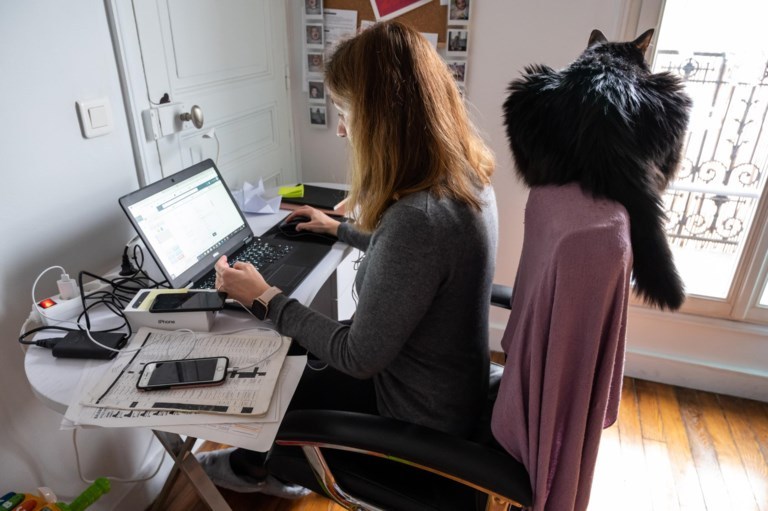84% of people want to continue teleworking after the coronavirus crisis, according to research by the Knowledge Centre for Family Sciences of the Odisee University of Applied Sciences.
The aim of the research, which questioned 5,245 people, was to assess the impact of the coronavirus crisis on the daily lives of families.
Teleworking is an important factor impacting family life, with nine out of ten respondents saying that it causes pressure and makes it difficult to keep work and family tasks separate. About 50% of the people working from home indicated that they feel this prevents them from paying the necessary attention to their child.
Additionally, about two-thirds of the parents said that it was difficult to concentrate on work with the children at home, which resulted in reduced productivity.
However, despite these stress factors, 84% hope they can continue to telework after the coronavirus crisis is over. "Respondents indicate that, in normal circumstances, teleworking can help find a good balance between work and family life," said researcher Miet Timmers in a press release.
Related News
- Coronavirus: 60 new deaths, 81 hospital admissions in Belgium
- Coronavirus: Exit phase 2 starts as planned from 18 May
- Companies face logjam later as employees postpone all holidays
"I predict that, after the crisis, there will be an increase in the number of telework requests, at times when children are sick or do not have school, for example," Timmers said, adding that it creates opportunities as "people can limit commuting and save time, and it is also good for the environment."
However, good housing and living conditions, a correct framework and the support and flexibility of the employer are decisive for the success of teleworking, she said.
The results are in line with an earlier study by the BDO consultancy firm, among more than 1,000 Belgians. It showed that nine out of ten Belgian employees and managers would like to telework one to three days a week, after the relaxation of the lockdown measures.
Working from home too much can cause a type of isolation, as people can feel less involved, according to Timmers, who also assumes that most respondents would like to work from home for one or two days a week.
With this survey, the researchers wanted to find out how the crisis is impacting society, and families, in particular. "We can learn a lot from this," said Timmers. "Policymakers need to take into account social vulnerability, and groups that are struggling," she added.
Maïthé Chini
The Brussels Times

